Japan – Discovering Zen Words – Today’s Best Word is “遊戯三昧 Yugesanmai”
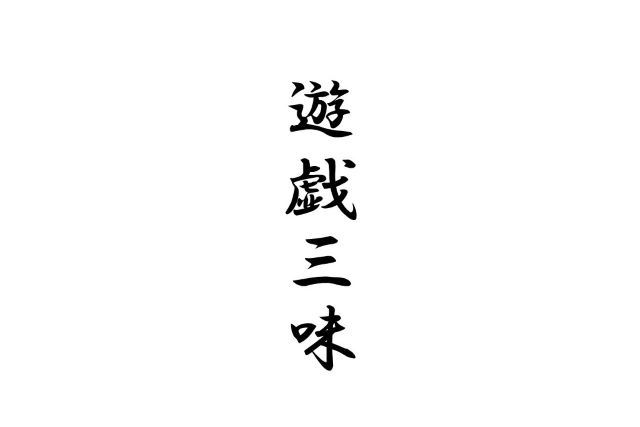
Zen is hard. And Zen words? Even harder.
So I go ahead and make up my own meanings—and I like them just fine.I like to think that Master Huineng, Dōgen, Ikkyū, and Ryōkan would nod gently and say, “That’s fine. That’s fine. Let it be, my friend.”
Today, I choose “遊戯三昧Yuge-Zanmai" It means that a state of freedom and mindlessness, unconstrained by anything.

Yugesanmai is the words of Mumon Ekai
t’s spelled yuugi(遊戯) but read yuge.Not the kind of “play" kids do in a sandbox. No, this is something the Buddhas and Bodhisattvas enjoy various times. moving through time, dancing lightly with the moment, not for fun, but from joy.
Samadhi, that’s the second part—being so immersed in something that the edges blur and time gets soft.Put them together: Yuge-Zanmai.
A state of being where you welcome both the good and the bad,and let yourself melt into it all—like tea leaves in warm water.The sky today is just the right kind of blue.The wind is soft.The pond has lotus blossoms like floating thoughts.
All you hear are leaves rustling, birds calling, insects singing—
nature playing its old song.I imagine a Bodhisattva strolling by the water’s edge,while the Buddha sits quietly beneath the Bodhi tree,not saying anything, not needing to.Time slows down.This might just be what Yuge-Zanmai looks like.
Get the freedom at the shore of life and death, and go into the Rokudo Shisei to YugeZanmai
The Mumonkan
“Yuge samadhi" is a word left in “Mumonkan" by the Zen monk Mumon Emon, who lived in the 12th century. Hui-mon practiced so hard that he would bang his head against a pillar to wake himself up, and vowed to throw himself into a fire if he did not attain enlightenment. He lived a life absorbed in training. Yet he left behind the phrase “Yuge samadhi." This shows how difficult it is to reach that state. It is difficult for an ordinary person to approach a state that is difficult even for Zen monks to reach.
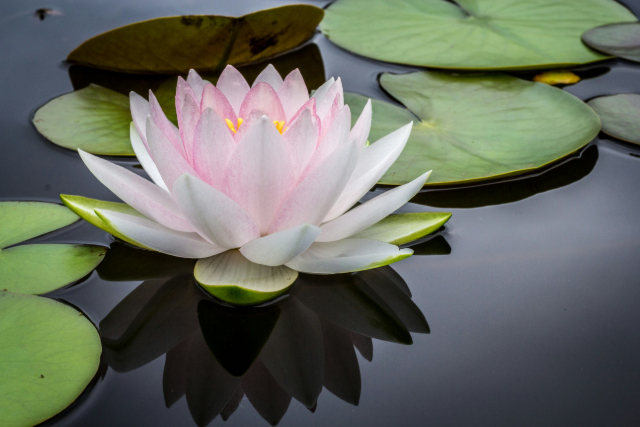
People are concerned about many things.
He lived a life absorbed in training. Yet he left behind the phrase “Yuge samadhi." This shows how difficult it is to reach that state. It is difficult for an ordinary person to approach a state that is difficult even for Zen monks to reach.
These days, society is overflowing with samadhi—or at least, things pretending to be.There’s book samadhi, hobby samadhi, fishing samadhi, even sushi samadhi.But here’s the truth: real samadhi? It’s harder than it sounds.Unless you’re truly starving, no one eats sushi with a clear, empty mind.
Even the guy who’s “immersed in work” is probably juggling twelve tabs in his head.a swirl of unpaid bills, missed calls, and that weird thing someone said in a meeting last Tuesday.Still, we ordinary folks like to think it’s easy to lose ourselves in what we love.
But then you’re out fishing—just you, the sea, and the rhythm of the waves.and suddenly you remember that bill due tomorrow.Instead of waiting until you’re home,you’re squatting on a rock trying to do a wire transfer on bad signal.And when the app crashes?So much for fishing zen.
At work, your mind keeps drifting back to a little argument with your wife.She was talking. You weren’t listening.“You never listen,” she said, and you both knew the script from there.You were wrong, but couldn’t say sorry in the moment.
Now you want to patch things up,but she’s not reading your messages,and the silence is louder than your inbox.
That transfer can wait until tomorrow.Better to finish your work, breathe a little deeper,and come home lighter, more ready to say what matters.Because sometimes, focusing on this moment—fishing, working, or even listening—ends up being the best thing you can do for the next one.
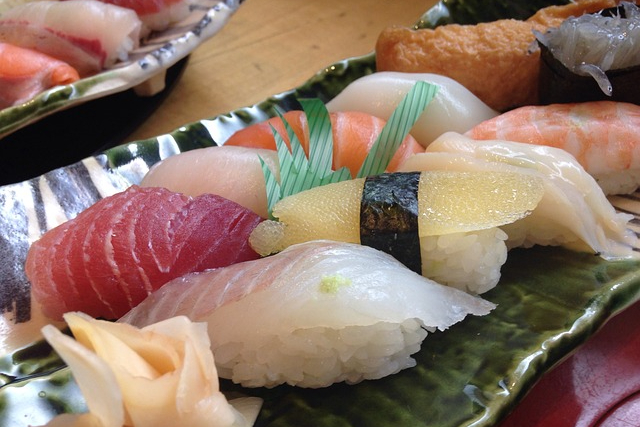
Let’s concentrate now
In his book The Smartphone Brain, Anders Hansen reminds us that humans have survived for thousands of years by overreacting.A rustle in the grass? Could be a lion. Better to run and be wrong than stay and be eaten.
We’re wired to be distracted.Even when things are going well, we worry about what might go wrong.It’s not a flaw—it’s biology.But knowing that? That’s the trick.
Once you understand it, you can learn not to follow every little worry down the rabbit hole.You can choose—just sometimes—to focus.To be fully where you are.That’s the heart of Yuge-Zanmai:
Enjoying the moment with all of yourself—whether the moment is beautiful, boring, or a complete mess.So next time your mind starts drifting away back to yesterday’s mistake or forward to tomorrow’s invoice—remember this ancient phrase:
Yuge-Zanmai.And maybe, just maybe, you can come back to now.

禅語は最高 「遊戯三昧」 いい時も悪い時も楽しもう
禅は難しいし禅語も難しい、だから勝手に解釈して勝手に良いと思っている。慧能禅師や道元禅師、一休さんや良寛さんも「それで良い、それで良い、Let it be じゃ」と言ってくれそうな気がする。
今日は「遊戯三昧」だ。
無問慧門の言葉
遊戯(ゆうぎ)と書いて(ゆげ)と読む。遊戯(ゆげ)は遊びではなく仏様や菩薩様がいろんな時を楽しむ姿である。三昧は何かに没頭して楽しむことだ。遊戯三昧は良いときも悪いときもその状況を無心に楽しむことを言う。
空は程よく晴れて、風は温かく、池に蓮の花が咲いている、聞こえてくるのは木の葉が揺れる音や鳥の囀り、虫の鳴き声など自然の音だけである。菩薩様が湖畔を散策され、お釈迦様は菩提樹の下で思索をされている。時間はゆっくりと流れている。遊戯三昧の風景はこのような感じかもしれない。
生死岸頭に於いて大自在を得て、六道四生の中に向かって遊戯三昧ならん
無門関
「遊戯三昧」は12世紀に生きた禅僧、無問慧門が「無門関」に残した言葉である。慧門は眠気を醒ますために頭を柱に打ちつけたり、悟りをひらけなければ火中に身を投じると誓うほど激しい修行をした。慧門は、修行三昧の生活を過ごした。それでも遊戯三昧という言葉を残した。その境地に入るのがいかに難しいのかがわかる。禅僧ですら到達するのが難しい境地に凡人が近づくのは難しい。
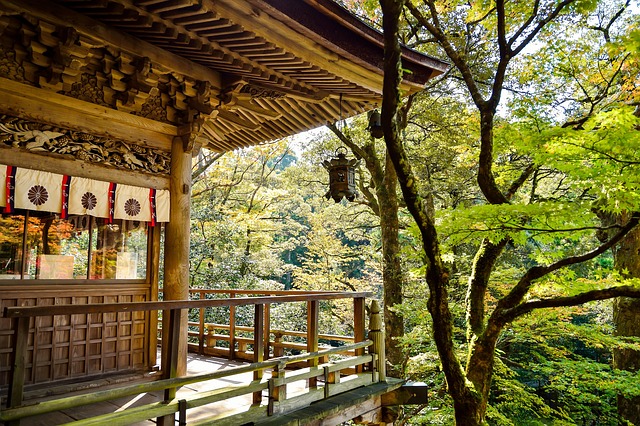
人は色んなことが気にかかる
今、社会は三昧が溢れている。読書三昧、趣味三昧、釣り三昧、すし三昧まである。だが三昧は意外と難しい。よほどお腹が空いていたら別だが、無心で寿司を食べる人はいない。仕事三昧でも仕事中の男の頭は雑念の塊である。なのに凡人は好きなことに没頭するのは簡単だと思ってしまう。
釣りの最中にふと明日の支払いを思い出す。帰ってから支払いをすれば良いのに、磯からネットバンキングで振り込もうとする。操作が上手くいかなかったらもう釣りどころでなくなる。妻との些細な喧嘩が気になり仕事に集中できないことがある。
喧嘩の理由は妻が話しかけているのに気がつかなかったことだ。他のことに気を取られていた。「また私の話を聞いていない、あなたはいつもそう」そこからはお決まりのコースである。自分が悪かったが直に謝れなかった。妻と仲直りしたい、が仕事中はできない。ラインを送っても既読にならない、余計に気にかかる。
振込は明日で間に合う。仕事を終えてすっきりした気分で帰ったほうが妻に誤りやすい。釣りや仕事に集中したほうが良い。今に集中することが良い結果につながることがある。

今を楽しもう
アンディッシュ・ハンセンは、著書「スマホ脳」に、人類は草むらでガサガサと音がすればライオンがいると思って逃げてきた、そうして生き残ったと書いている。人は色んなことに気を取られるようにできている。人は上手くいっているときも未来を心配する。心配をするようにできているのだ。
だから、それを知って無用な心配をしないように心掛ける。意識を集中して今を楽しむことが大切なのだ。良いときも悪いときも楽しむのが「遊戯三昧」の境地だ。今やっていることに集中できないときは「遊戯三昧」を思い出そう。

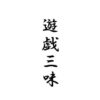
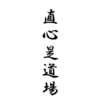
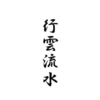
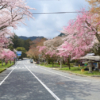
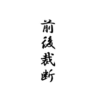
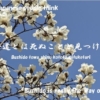
ディスカッション
コメント一覧
まだ、コメントがありません